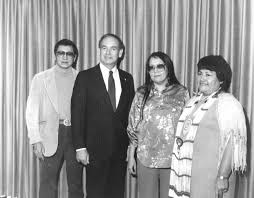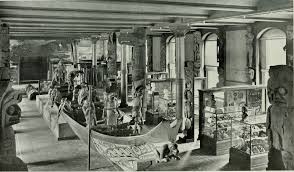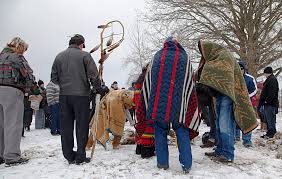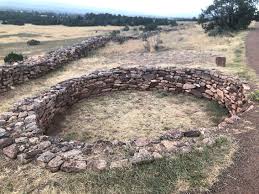
Newberry Library

Newberry Library
1990 The Native American Graves Protection and Repatriation Act (NAGPRA) was introduced into the United States House of Representatives. After two amendments to the bill, it passed both the House and the Senate before being signed into law by President George H. W. Bush. This act would forever change the landscape of the rights of Native Americans.
"NAGPRA (the Native American Graves Protection and Repatriation Act) is a federal law that requires skeletal remains and certain artifacts (such as grave goods and sacred objects) from past populations to be turned over to culturally affiliated present-day Native American tribes. The cultural affiliations can be determined through a variety of means including scientific, historic, and oral traditions, but the determination of affiliation should be by a preponderance of evidence, which means that half or more of the evidence should support the link between the past and the present peoples. All federally funded institutions in the U.S., such as universities and museums (even private ones that accept federal funding) are required to follow NAGPRA. This includes the requirement that they create inventory lists so that Native American tribes can request repatriation of previously discovered and curated items."
Weiss

Center for Art Law
"Man has responsibility, not power"
Native American Proverb

The Cultural Property News
Museums and scientists opposed this bill because they thought they could not do necessary tests and research if they returned remains.
"NAGPRA requires federally funded museums and agencies to inventory American Indian cultural items, funerary objects, sacred objects and items with cultural patrimony. If the items are proven to have cultural affiliation they must be returned to the tribe."
Bean
NAPGRA mandated that all scientists, museums, and other institutions to inventory all Native American remains and make the list available to tribes. Now, Native Americans have the right to request a repatriation, or recovery and reburial, for their ancestors. For this request to be granted, the tribe must present irrefutable proof of ancestry or cultural affiliation.

The New York Times

Library of Congress Blogs
"The Native American Graves Protection and Repatriation Act (NAGPRA) of 1990 requires institutions receiving federal money to return human remains and grave items to Native American tribes if the tribes can prove their "cultural affiliation" to the remains."
Carson and Powell